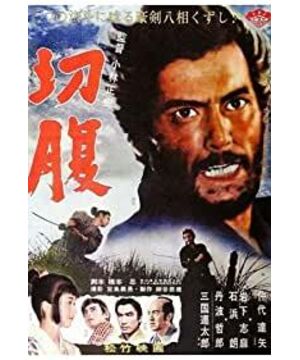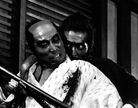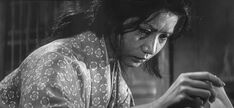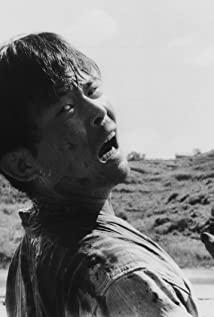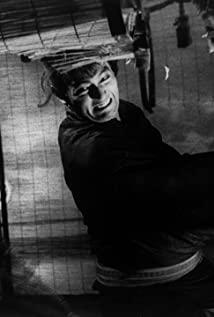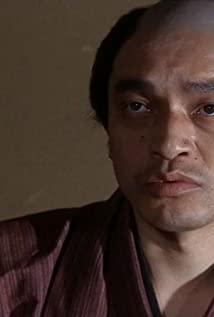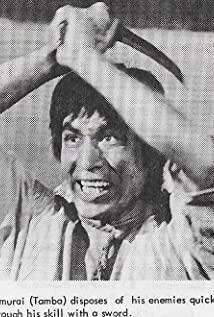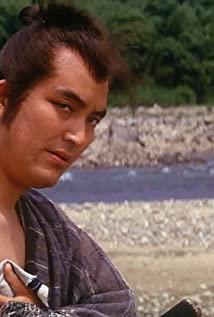In half a year, I went to the theater to do "Slicing the Abdomen" twice, and I saw the Nakadai Tatsuya Honzon for the second time. I was very excited and felt that it was necessary to say a few words about this classic by Masaki Kobayashi.
When I first watched "Cutting the Abdomen" not long ago, I witnessed the whole process of a human tragedy that was infuriated between humans and gods, as well as the belated justice and revenge. There were many characters in the scene, but only the lonely heroic image of Nakadai Tatsuya was remembered. It was also the first time that I felt that the samurai of Nakadai Tatsuya was better than that of Toshiro Mifune. The second time I watched "Cutting the Abdomen" in the theater, the mood was quite different from the first time. It was desperate, painful and angry. There was no winner in the desperate resistance. Only the gods who watched coldly watched the samurai family step by step toward self-destruction. The real tragedy is to tear up meaningful things for others to see. This is the case in "Cutting the Belly", and I accidentally caught a glimpse of Kobayashi Masaki's political metaphors in "Cutting the Belly" and the original meaning of borrowing from the past to the present.
At the end of the movie, the samurai Tsumo Hanshiro, played by Tatsuya Nakadai, said that the so-called Bushido is just for the sake of appearance. For the sake of "facade", yes, those who keep saying in order to stifle the deceitful and unscrupulous, they will not hesitate to kill people to fight against the shameless "ant-like" samurai who are greedy for small gains. All these high-sounding rhetoric are only for the sake of a guilty conscience, in order to cover up injustice. The cruel nature of.
The artistic characteristic of "Abdomen" is reflected in the flashback technique of this and the other, which reveals to the audience a brutal and cruel killing. What kind of person is the "bamboo sword samurai" Qianqianyan who asks for a daughter in everyone's contempt? At the beginning, like most people who eat melons, I almost believed in the swearing words of Elder Jingyi (played by Mikuni Rentaro) that Qian Qianyan’s begging girl was a "unworthy to be called a samurai" who went to the door of the princes to win sympathy. Big liar. However, in the words of Tsumo Hanshiro, the opposite is true. Qianqianyan's begging for a girl is not only a "liar", but a true samurai who sticks to morals, and is also a good husband and father who values his love and righteousness. Sick and unable to find a living everywhere, he reluctantly sold the samurai sword that he regarded as life, and then he took the bamboo knife to Ii's house to cut his belly. He didn't want to blackmail money, but just to save his son's life, he was forced to come to the house of the rich and powerful. It was not blackmail at all, but a call for help when he was on the brink of desperation. Unfortunately, the incomprehensible Samurai Ii family didn't give money in the snow, but fell into trouble. , Forcibly forced Qian Qianyan to beg her daughter to commit suicide. After Qian Qianyan Qiu's daughter died, his wife and children died one after another, leaving only the old Yue Zhang Jinyun Banshiro.
The two versions of Qianqianyan Seeking Girl, the speakers insist on their own words, forming a strong contrast in the text, but this is not Kurosawa Akira's "Rashomon". After all, the audience has long been determined, Qianqianyanqiu They all saw the miserable experience of the female family. What is incredible is that even ordinary people who encounter a beggar who risked his death for help on the street may give birth to a compassionate charity, but the princes who claim to be heirs of the Bushido can not save themselves and even kill people with the sword. In other words, can a samurai who can't save him and kill someone with the help of a sword can still be called a samurai? Are these sinners worthy of calling themselves the heirs of Bushido?
It can be seen from this that those princes who claim to be the noble descendants of Bushido are nothing but you. In this chaotic world where people and ghosts are upside down, the benevolence, justice, etiquette, wisdom and faith that those warriors once believed in has long since disappeared, leaving only a pale empty space. Shell.
At the beginning and at the end of "Cutting the Abdomen", the armor that the ancient princes once wore when they were golden and iron horses appears. It is a relic of the era when Bushido was popular. Ii’s family has always offered this old armor in the shrine, which seems to be the incarnation of Bushido in this world. However, at the end of the film, the samurai played by Nakadai Tatsuya carried this armor and slayed angrily, and the incarnation of Bushido was covered with it. With blood, this metaphor is self-explanatory. The once Bushido is no longer sublime and clean, but is covered with unethical killings and blood, and this is undoubtedly a strong evidence that the Bushido is getting worse.
There is no Bushido in the world, and there is nothing but the sins of the Fly Ying Gougou and the magnificent whitewashing. The irony is that the samurai in Nakadai Tatsuya cut his belly and committed suicide. In the end, Ii’s family also suffered heavy casualties. However, what the perpetrator recorded in the genealogy was that all his family members died of illness. The same is true for the outsiders. They still refuse to be responsible for the encounter with Qian Qianyan's begging daughter's family. The armor of the ancient samurai in the scene is silent, and all crime and revenge seem to have never happened, but only God knows that it is these descendants who claim to be the heirs of Bushido to shame Bushido.
Martial arts are not good, they are all on paper, and morality is degraded, and they are all intrigues. This is the impression given to me by the Ii family warriors in "Cutting the Abdomen". It can be said that although they are powerful and powerful, they are not talented or virtuous. They are both bluffing and sinful. They laughed at Qianqianyan's begging a woman to cut her belly with a bamboo knife for being unworthy of being a samurai, but for themselves, when Tsumo Hanshiro lifted the curtain of revenge and cut off their hair buns one by one. ), but they all lied that they were sick and didn't dare to show others, and they didn't mean to commit themselves to shame. They just wanted to cover up their shame as soon as possible. In sharp contrast, Tsumo Hanshiro, played by Nakadai Tatsuya, and his son-in-law, Chichiiwa, are both samurai, but they are different in cultivation. Especially Tsumo Banshiro, as a wandering samurai of a declining clan, he values his love and righteousness and is exquisite in martial arts, but he is never domineering nor arrogant. It was the tragic death of his wife, children and son-in-law that made him question the emptiness and inconsistency of Bushido. This reflection must be heart-wrenching, and it is also mixed with the crash of faith.
The historical background of "Cutting the Belly" is the reduction and centralization of power by the Tokugawa shogunate. In order to strengthen the power of the ruling class, the shogunate weakened the power of many princes. Almost overnight, the famous samurai who served for the princes were reduced to ronin and lost their ability to work. Most of them live on the streets like bereaved dogs. By the time of Iemitsu, the third shogun of the Tokugawa Shogunate, the failure of samurai and the decline of Bushido were indisputable facts. The "righteousness, bravery, benevolence, courtesy, honesty, reputation, loyalty, and self-denial" advocated by Bushido have disappeared. . Of course, the underlying reasons for this are very complicated. It cannot be simply attributed to the depravity of certain princes or warriors, but more to the impermanence and cruelty of political struggles. The warriors and the Bushido they represent are just victims of the struggle for power. The particularity of the warrior class also determines this tragic experience. When the new situation comes, they will inevitably be unable to protect themselves if they stick to the tradition, and the Bushido culture is gradually declining, just like the continuous decline of our country's "warrior" culture in dynasties. And these are the ebb and flow of history, no matter who is in it, there is no escape. What is left to us after the passage of time is only a sigh when we look back.
View more about Hara-Kiri reviews


